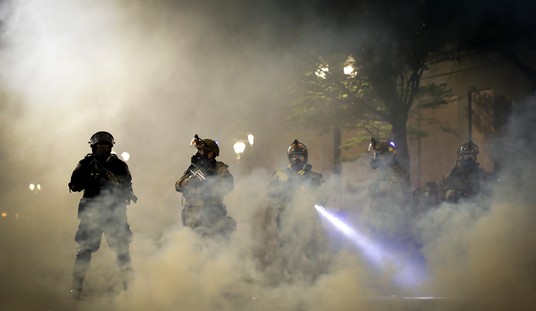California’s Assembly Bill 5 (AB 5), which purports to protect workers from evil employers who want to misclassify them as independent contractors, went into effect today. Written by the California Labor Federation and sponsored by former union president Asm. Lorena Gonzalez (D-San Diego), the bill was designed to unionize Uber, Lyft, Doordash drivers and the like, but has had far-reaching impacts on numerous professions (including freelance writers).
Currently three lawsuits have been filed by industry groups or corporations challenging the law and requesting preliminary injunctions. As of December 31, injunctions had been granted in suits filed by the California Trucking Association and by Uber and Doordash. There has been no word on when a hearing or ruling would be issued on a motion for preliminary injunction in a suit filed by industry groups representing freelance writers and press photographers.
There is a lot of confusion about what exactly AB 5 does. Some of it is misinformation perpetuated by union groups, some comes through ignorance, and much of the confusion comes from the fact that the bill itself is horribly written and contains nonsensical exemptions and requirements.
Here is what the LA Times said about how the bill came about and what it does:
In April 2018, the California Supreme Court dropped a bomb on a vast swath of companies, from Uber and Lyft to yoga studios and hair salons, which have built their businesses on independent contractors. To classify workers as contractors rather than employees subject to minimum wage and overtime laws, companies would have to satisfy a strict three-pronged test.
Under the “ABC test,” a business may only contract with independent contractors who satisfy all three of these conditions: a) they are free from control and direction of the hiring entity; b) they perform work outside the usual course of the hiring entity’s business; and c) they are customarily engaged in an independently established business of the same nature as that of the work involved.
The court decision set off a scramble in the Legislature. Backed by labor unions that see an opportunity to organize newly empowered employees, Assemblywoman Lorena Gonzalez (D-San Diego) authored AB 5 to codify the decision, expanding it to areas such as workers’ compensation and unemployment and disability insurance.
Gonzalez (an attorney and member of the State Bar) herself said that the Dynamex decision only applied to people subject to wage orders.
Ronnie, what happened was that your employer was overly cautious and applied Dynamex to you. Dynamex ONLY applied to wage orders. This is the “fact sheet” Lorena posted straight from CA Labor this week: pic.twitter.com/7nhAoPJ8Dt
— JoBeth (@HEYJBMC) December 31, 2019
Gonzalez had posted an AB 5 fact sheet from the California Department of Labor which stated:
“While we refer to categories in the bill as exemptions, many would not have been covered by the decision in the first place. Because Dynamex only applied to wage orders, it already excluded many professionals who are not covered by wage orders. AB 5 clarified that by exempting many professional categories.
In the past, many people who performed professional consulting, executive, or administrative types of work were not subject to wage orders and could therefore work in either an employee or a freelance capacity and be in compliance with the law. AB 5 changed that, and by default all workers in the state were deemed employees unless their employer/contractor could prove that the worker fell into an exemption.
The following professions are completely exempted from AB 5:
Insurance agents, physicians, dentists, veterinarians, psychologists, lawyers, engineers, private investigators, architects, accountants, securities brokers regulated by FINRA, direct salespeople, grant writers, fine artists, payment processors, real estate agents, repossession agencies, travel agents, graphic artists.
Human Resources administrators and marketing consultants are exempt under certain conditions, as are commercial fishermen, manicurists, estheticians, barbers, and cosmetologists.
Freelance writers, press photographers, and editorial cartoonists are only exempt if they produce fewer than 35 pieces per outlet they contribute to. This illustrates some of the idiocy of the exemptions. If an editorial cartoon were to be classified as, say, fine art or graphic art, that person would be fully exempt from AB 5.
The only way for people providing professional services who aren’t exempt to continue operating as an independent contractor is to create a business entity and follow a long list of requirements set forth in the bill. For most people, this would cost around $5,000 a year between taxes and necessary professional services to ensure they don’t run afoul of a myriad of state bureaucratic entities’ rules.
Even then, nothing requires a company to continue using a California-based freelancer. Since freelancers in the other 49 states (or globally) aren’t subject to these rules, the company can avoid potential (massive) fines by just avoiding California. That’s exactly what has happened.
California’s freelancers got zero help from the Cal Chamber and should remember that going forward. The LA Times reported:
It did not list Assembly Bill 5, the independent contractor bill, on its annual “job killer” list, preferring to help negotiate for a slew of professionals, such as doctors and real estate agents, to gain exemptions.
“We felt it was important to participate in the compromise,” said Chamber President and Chief Executive Allan Zaremberg. “This is a work in progress, and it will continue to be.”
This work in progress has left hundreds of thousands of Californians and their families with a huge loss of income and uncertainty about their future. It’s not something on which to simply “compromise” and cherry-pick favored professionals. When California’s freelance economy dries up, all of the state’s businesses will suffer. The geniuses at the Cal Chamber didn’t take that into account.















Join the conversation as a VIP Member